
Chuhai Labs co-founder Giles Goddard thinks minimum settings are going out of fashion. A veteran of Nintendo in Japan who has worked on everything from Amiga and N64 to Wii and Oculus Quest, he’s noticed a change over the years with regard to developing for different PC specifications. “It used to be that the developers would aim for the lowest spec, and they’d make it look great on that, regardless of anything,” he says. “And then, if you had a faster PC or graphics board, you could put more bells and whistles on top for post-processing effects or whatever, but only to make what was already there nicer-looking.
“I think nowadays, because everybody’s got a [powerful computer] the bar is so high that all the AAA makers are basically just aiming for the highest spec PCs. They’re assuming that if you’re going to pay that much for the game, you’re also going to pay a lot for your gaming setup [so] obviously, they spend a lot of money, time, and effort making the games as great as possible on those machines. I don’t think it’s really in their interest anymore to aim for the lower spec. It definitely used to be the priority, I think, maybe ten or twenty years ago.”
HIGH LIFE, LOW SPEC
These shifting priorities are reflected, Goddard suggests, in the way games are discussed and reported on. “It used to be quite a hot topic – if you turn on these settings on this PC with these specs you can get these kind of graphics. It used to be in all the reviews and all the magazines, how to get the most out of this game. And that’s just not talked about – you just assume it’s going to be max settings.”
This story is from the {{IssueName}} edition of {{MagazineName}}.
Start your 7-day Magzter GOLD free trial to access thousands of curated premium stories, and 9,000+ magazines and newspapers.
Already a subscriber ? Sign In
This story is from the {{IssueName}} edition of {{MagazineName}}.
Start your 7-day Magzter GOLD free trial to access thousands of curated premium stories, and 9,000+ magazines and newspapers.
Already a subscriber? Sign In

A New Dawn - The rise, fall and rise again of PC Gaming in Japan
The so-called 'Paso Kon' market (ie katakana's transliteration of 'Pasonaru Computa') in Japan was originally spearheaded in the 1980s by NEC's PC-8800 and, later, its PC-9800.
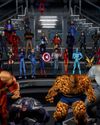
MARVEL: ULTIMATE ALLIANCE
Enter the multiverse of modness.
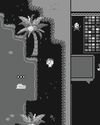
SLIDES RULE
Redeeming a hated puzzle mechanic with SLIDER
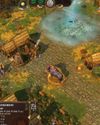
GODS AND MONSTERS
AGE OF MYTHOLOGY: RETOLD modernises a classic RTS with care

PHANTOM BLADE ZERO
Less Sekiro, more Wo Long: Fallen Dynasty

STARR-MAKING ROLE
Final Fantasy XVI's BEN STARR talks becoming a meme and dating summons
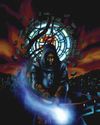
THIEF GOLD
Learning to forgive myself for knocking out every single guard.

HANDHELD GAMING PCs
In lieu of more powerful processors, handhelds are getting weirder
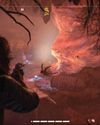
FAR FAR AWAY
STAR WARS OUTLAWS succeeds at the little things, but not much else shines
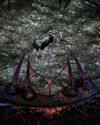
FINDING IMMORTALITY
Twenty-five years on, PLANESCAPE: TORMENT is still one of the most talked-about RPGs of all time. This is the story of how it was created as a ‘stay-busy’ project by a small team at Black Isle Studios